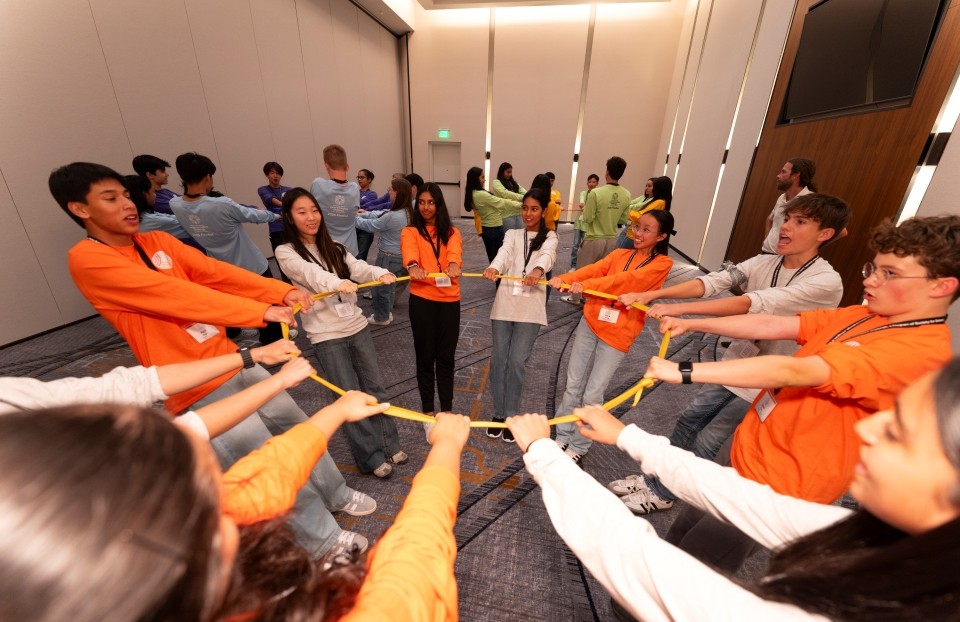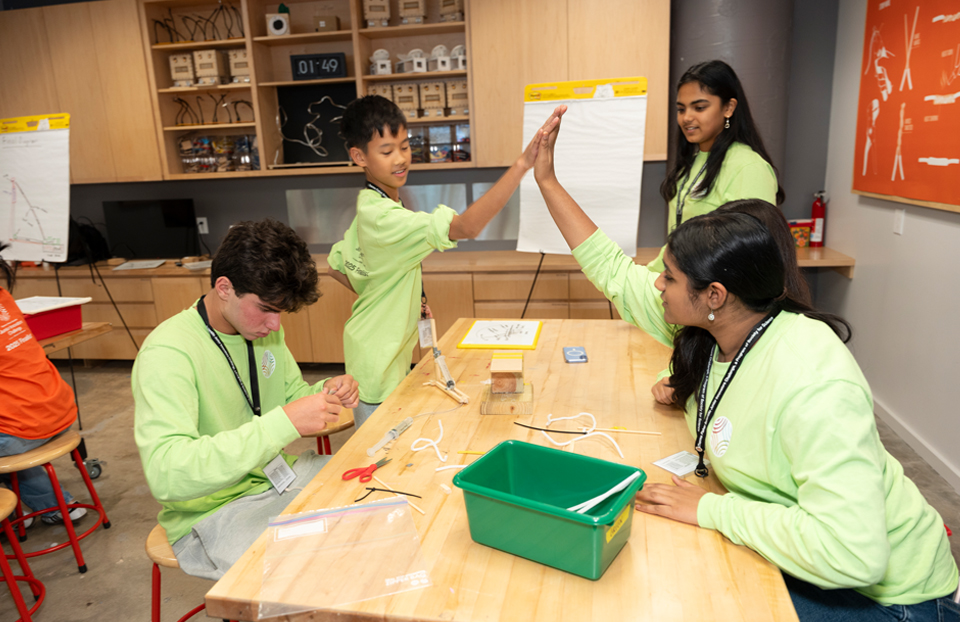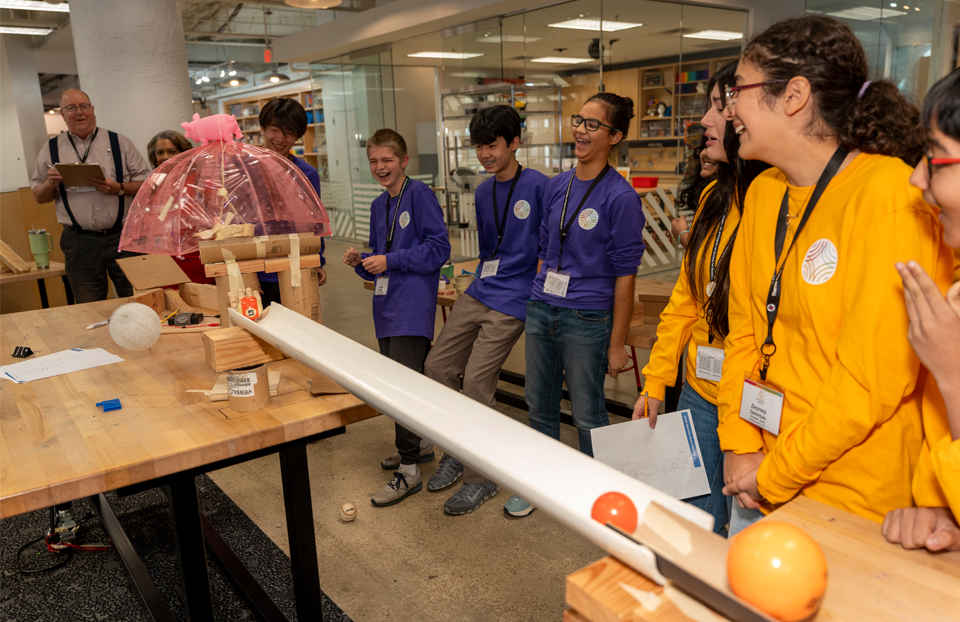Five Questions with Tyler Malkin, the winner of the 2024 $10,000 Robert Wood Johnson Foundation Award for Health Advancement
It was when Tyler Malkin, 15, of Greenwich, Conn. was diagnosed with iodine deficiency that his journey into scientific research began. He learned that this was a common condition that impacts nearly two billion people around the world and remains the leading preventable cause of brain damage. More consequences if iodine deficiency is unaddressed are thyroid disease, developmental delays, and complications during pregnancy. In the United States, iodine is commonly added to salt, so here the condition is rare, but in many parts of the world including developing countries, access to iodine-rich foods or supplements is limited, and the tools to detect the deficiency are expensive or simply unavailable.
Luckily, Tyler’s own deficiency was caught before it led to any permanent health challenges, but he knew people all over the world might not be as lucky as he was. Inspired to help, he developed a rapid, non-invasive saliva test that allows people to monitor their iodine levels at home—without needing a lab, a doctor’s visit or costly detection equipment.
For this work, Tyler won the $10,000 Robert Wood Johnson Foundation Award for Health Advancement at the 2024 Thermo Fisher Scientific Junior Innovators Challenge. The award recognizes the student whose work shows the most promise in health-related fields and demonstrates an understanding of the many social factors that affect health. Tyler’s invention does just that, offering an affordable solution to a widespread public health problem and helping to ensure that where you’re born doesn’t determine whether you get to be healthy.
We had a chance to catch up with Tyler. See more below!
What was a challenging moment you faced while working on your project, and how did you get through it?
One of the biggest challenges I faced was learning to use complicated scientific equipment and ensuring I utilized proper scientific technique. For example, my test calibration process required pipetting very precise amounts of liquid, and it took many hours of practice to achieve this specificity. I also learned that although scientific equipment can do amazing things, it can also malfunction. Several times during my research process, I had to delay my analysis or change my approach due to equipment breakdowns. However, even when my hands were sore from hours of pipetting or one of the machines I was using malfunctioned, I remained motivated to continue my research because I want to help the millions of people with iodine deficiency who don’t currently have access to diagnostic tests.
Was there a specific “aha moment” when you realized you were on the verge of solving your research problem?
The first time I witnessed my diagnostic test change from blue to red was exhilarating. This indicated that I had found the correct calibration of chemicals to create a functional test. I realized that not only did my months of work create new technology, but my research had the potential to help millions of people around the world, including kids like me.
What’s one of the most memorable or surprising experiences from your Thermo Fisher JIC journey?
One of the most memorable experiences was becoming friends with so many amazing people and getting to have such cool experiences together! Whether we were analyzing ecosystems with biocubes at the Smithsonian Environmental Research Center, using gel electrophoresis to diagnose sickle cell anemia, or solving puzzles together in an escape room, it was so much fun hanging out with people who love science as much as I do.
Can you share a special moment from the competition week?
A special moment from the competition week was the project showcase. I’m passionate about developing a solution for iodine deficiency and spreading awareness about the condition, so I loved discussing my research with everyone from renowned scientists to the general public. I also really enjoyed learning about the fascinating projects of the other finalists.
If you could join forces with any fictional STEM genius, like a character from a science-themed TV show, who would it be, and what groundbreaking project would you collaborate on?
I would love to team up with Ms. Frizzle and her Magic School Bus, traveling back in time to educate people about important STEM concepts to improve global health and prevent climate change. For example, imagine the millions of lives we could save traveling to the 14th century to teach people about hygiene and sanitation during the time of the Black Plague?
What’s something fun you love to do outside of science?
I love playing basketball, squash, and video games with friends, learning about intriguing events in history, and spending time at the beach.
The Thermo Fisher JIC application is due on June 11, 2025 at 8p.m. ET. If you are a nominee, you can check out the application here: https://thermofisherjic.smapply.org/


